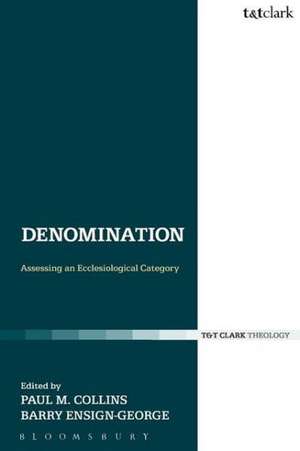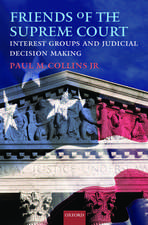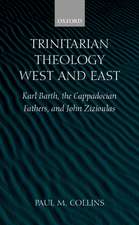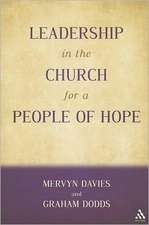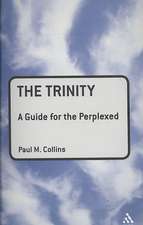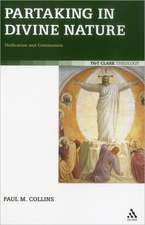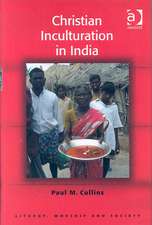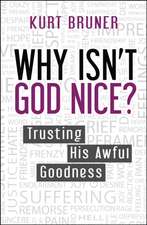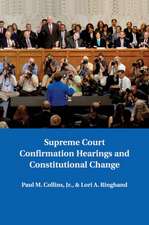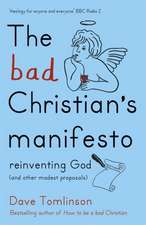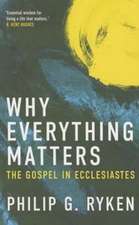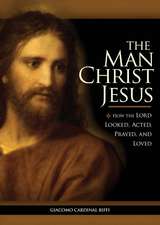Denomination: Assessing an Ecclesiological Category: Ecclesiological Investigations
Editat de Rev Dr Paul M. Collins, Rev Barry A. Ensign-Georgeen Limba Engleză Paperback – 19 dec 2012
| Toate formatele și edițiile | Preț | Express |
|---|---|---|
| Paperback (1) | 255.66 lei 6-8 săpt. | |
| Bloomsbury Publishing – 19 dec 2012 | 255.66 lei 6-8 săpt. | |
| Hardback (1) | 772.58 lei 6-8 săpt. | |
| Bloomsbury Publishing – 15 iun 2011 | 772.58 lei 6-8 săpt. |
Din seria Ecclesiological Investigations
- 22%
 Preț: 949.17 lei
Preț: 949.17 lei - 22%
 Preț: 888.81 lei
Preț: 888.81 lei - 22%
 Preț: 948.75 lei
Preț: 948.75 lei -
 Preț: 256.49 lei
Preț: 256.49 lei -
 Preț: 256.77 lei
Preț: 256.77 lei - 23%
 Preț: 255.29 lei
Preț: 255.29 lei - 14%
 Preț: 192.73 lei
Preț: 192.73 lei - 13%
 Preț: 258.77 lei
Preț: 258.77 lei - 22%
 Preț: 257.68 lei
Preț: 257.68 lei - 22%
 Preț: 257.12 lei
Preț: 257.12 lei - 14%
 Preț: 196.17 lei
Preț: 196.17 lei - 13%
 Preț: 257.32 lei
Preț: 257.32 lei - 22%
 Preț: 257.50 lei
Preț: 257.50 lei -
 Preț: 257.86 lei
Preț: 257.86 lei - 13%
 Preț: 258.69 lei
Preț: 258.69 lei - 22%
 Preț: 238.11 lei
Preț: 238.11 lei - 22%
 Preț: 239.02 lei
Preț: 239.02 lei - 22%
 Preț: 239.85 lei
Preț: 239.85 lei -
 Preț: 256.59 lei
Preț: 256.59 lei - 22%
 Preț: 259.34 lei
Preț: 259.34 lei -
 Preț: 257.68 lei
Preț: 257.68 lei -
 Preț: 257.97 lei
Preț: 257.97 lei
Preț: 255.66 lei
Preț vechi: 330.21 lei
-23% Nou
Puncte Express: 383
Preț estimativ în valută:
48.92€ • 51.21$ • 40.72£
48.92€ • 51.21$ • 40.72£
Carte tipărită la comandă
Livrare economică 31 martie-14 aprilie
Preluare comenzi: 021 569.72.76
Specificații
ISBN-13: 9780567263520
ISBN-10: 0567263525
Pagini: 192
Dimensiuni: 156 x 234 x 10 mm
Greutate: 0.27 kg
Editura: Bloomsbury Publishing
Colecția T&T Clark
Seria Ecclesiological Investigations
Locul publicării:London, United Kingdom
ISBN-10: 0567263525
Pagini: 192
Dimensiuni: 156 x 234 x 10 mm
Greutate: 0.27 kg
Editura: Bloomsbury Publishing
Colecția T&T Clark
Seria Ecclesiological Investigations
Locul publicării:London, United Kingdom
Caracteristici
Written
by
representatives
of
all
major
Christian
traditions.
Notă biografică
Revd
Dr
Paul
M.
Collins,formerly
Reader
in
Theology
at
the
University
of
Chichester,
Parish
Priest
on
Holy
Island,
Northumberland,
UK.Barry
Ensign-Georgeis
a
Minister
of
Word
and
Sacrament
in
the
Presbyterian
Church
(USA),
which
he
serves
as
Associate
for
Theology
in
the
denomination's
Office
of
Theology
&
Worship.His
reaserch
is
focused
on
ecclesiology,
particularly
on
formulating
a
theological
assessment
of
denomination
as
an
ecclesiological
category.
Cuprins
Introduction
Paul
M.
CollinsDenomination
as
Ecclesiological
Category:
Sketching
an
AssessmentBarry
Ensign-George(Reformed/Presbyterian)\Anglican
'Denomination:
An
Anglican
Appraisal'Paul
AvisBaptist:
'The
Ecumenical
Dimensions
of
Baptist
Denominational
Identity'Steven
R.
HarmonLutheran:
'The
Lutheran
Church:
Church,
Confession,
Congregation,
Denomination'Gesa
ThiessenMethodist:
'United
Methodism:
Its
Identity
as
Denomination'
Russell
Richey\Orthodox:
'The
Orthodox
Church
on
Denomination'Elena
VishnevskayaPentecostal:
'The
Denomination
in
Classical
and
Global
Pentecostal
Ecclesiology:
A
Historical
and
Theological
Contribution'Wolfgang
VondeyQuaker:
'Denomination
beyond
the
North
Atlantic
Ecclesial
World'Ann
RiggsReformed/Presbyterian:
'Presbyterianism
and
Denomination'Amy
Plantinga
PauwIs
there
a
future
for
denominationalism?
Reflections
from
the
perspective
of
Roman
Catholic
ecclesiology
and
from
the
perspective
of
the
future
of
the
ecumenical
movementPeter
de
MeyAfterword:
A
Global
PerspectiveKirsteen
Kim
Recenzii
With
the
collapse
of
classical
ecumenism
and
the
emergence
of
new
divisions
in
the
church,
the
time
is
ripe
for
a
fresh
theological
look
at
the
contentious
issue
of
denominationalism.
This
volume
tackles
the
thorny
issues
cleanly
and
forthrightly.
Both
those
who
are
repelled
by
the
whole
idea
of
denominationalism
and
those
who
want
to
retrieve
and
fix
it
will
find
this
splendid
volume
invaluable
in
thinking
through
their
positions.
What is a denomination? Does it differ from a convention, fellowship, synod, or church? Is it primarily a sociological or a theological term? Denominational consciousness stands for particularity relative to the whole church. The premier ecclesiologists who discuss the nature, function, and relevance this term in an ecumenical age display the diversity of their denominational points of view. As denominations wane in the West and never quite take hold in cultures that do not share the history that generated them, will the gifts that each preserves for the whole church be lost? These analysts throw distinctive light on these issues and by so doing relativize the narrowness of denominational consciousness and help expand the vision of the larger church in which the denominations participate. This topic and these superb treatments of it provide a unique entrée into the ecumenical vision that people from all the denominations will appreciate. As a whole the book represents a quiet, conversational but brilliant essay in comparative ecclesiology that no course in ecumenism can neglect.
An important collection... looking at the issue of denominationalism from theological, ecumenical and sociological perspectives... Highly recommended.
As the blurb states, this book will indeed be a text for my next course on "Unity in Division". It offers challenging perspectives on bringing theological perspectives to the social realities which shape many churches in today's western world -- and beyond.
What is a denomination? Does it differ from a convention, fellowship, synod, or church? Is it primarily a sociological or a theological term? Denominational consciousness stands for particularity relative to the whole church. The premier ecclesiologists who discuss the nature, function, and relevance this term in an ecumenical age display the diversity of their denominational points of view. As denominations wane in the West and never quite take hold in cultures that do not share the history that generated them, will the gifts that each preserves for the whole church be lost? These analysts throw distinctive light on these issues and by so doing relativize the narrowness of denominational consciousness and help expand the vision of the larger church in which the denominations participate. This topic and these superb treatments of it provide a unique entrée into the ecumenical vision that people from all the denominations will appreciate. As a whole the book represents a quiet, conversational but brilliant essay in comparative ecclesiology that no course in ecumenism can neglect.
An important collection... looking at the issue of denominationalism from theological, ecumenical and sociological perspectives... Highly recommended.
As the blurb states, this book will indeed be a text for my next course on "Unity in Division". It offers challenging perspectives on bringing theological perspectives to the social realities which shape many churches in today's western world -- and beyond.
